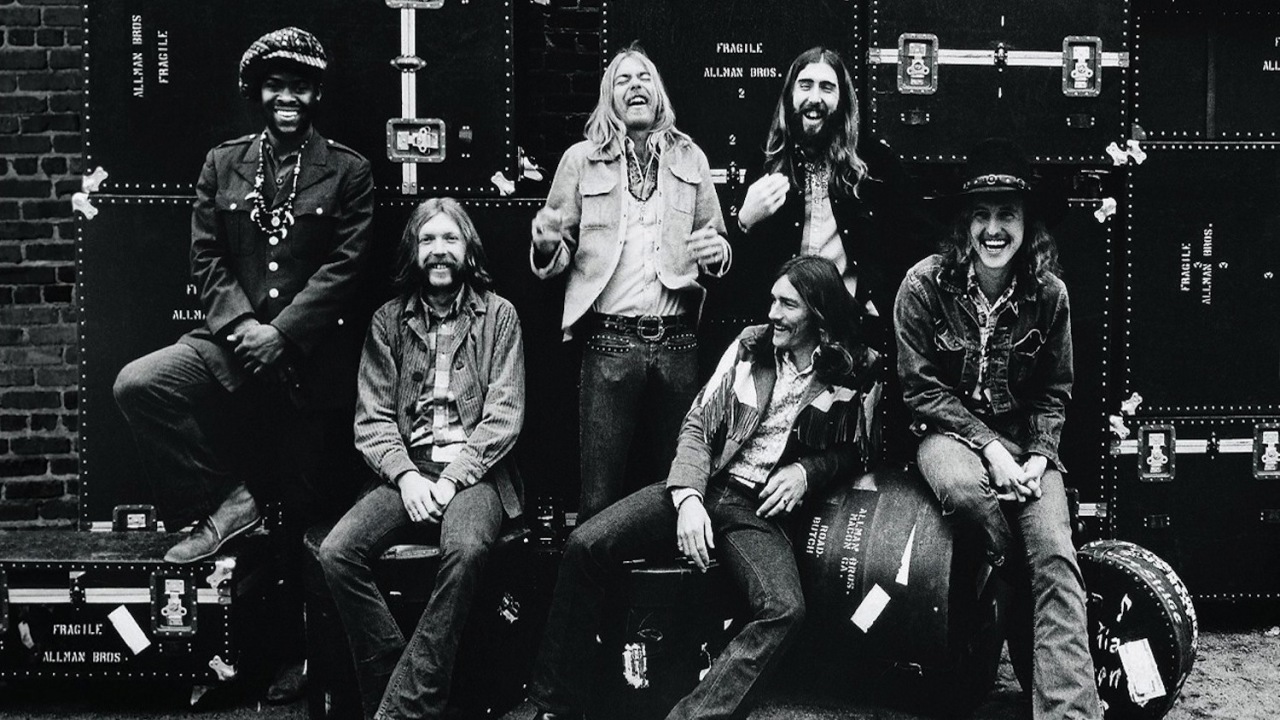Forty-three years have passed since it was decided that the only way to convey what the Allman Brothers Band were capable of would be to bottle lightning – to somehow distil their technical exuberance, their melodic sorcery, and show off what the hubbub was about. 1970’s majestic Idewild South, their second album, had failed to set the world alight, but the band’s shows – more than 300 that same year – had sparked a wildfire of interest, and the wider world just needed to know what their freewheeling jazz-fusion take on southern rock sounded like.
The virtuosity of their marathon performances captured on At Fillmore East – taken from recordings of three nights in March 1971 – would make it a cast-iron classic and the ultimate double-live album. The greatest show recording of all time, it’s also powerful testament to the prowess of the greatest gigging band of all time at their peak.
Is it possible that such a record requires revision? It’s debatable. At Fillmore East was a composite – a patchwork of tracks that were actually recorded over three nights, so you might consider the gargantuan The 1971 Fillmore East Recordings something of a director’s cut, a generous second helping, and – if you’ve ever toked on its mammoth, 23-minute Whipping Post and found your mind blown – manna from heaven. Even those who haven’t returned to those original recordings countless times to still discover new, gorgeous nuances would be hard-pressed not to marvel at the feverish intensity of those sets, and imagine themselves there, gazing transfixed on a group of musicians whose dexterity would have been nothing less than hypnotic.
Produced by Bill Levenson (who was also responsible for 2013’s excellent Skydog: The Duane Allman Retrospective), The 1971 Fillmore East Recordings is far more than just an expanded edition. It’s a glorious, lovingly rendered smorgasbord of sounds that is as outrageously enjoyable as it is unapologetic in its scope. Does the world really need the full account of those fabled nights, including 14 previously unreleased tracks, spread over five discs, and a sixth disc comprising the Allman Brothers’ complete recording from the Fillmore East’s legendary closing-down show on June 27, 1971? Yes it does.
It was late that night that famed rock promoter Bill Graham took the stage of the Fillmore East for the very last time. Over the years, the 2,500-capacity East Village venue had come to be known as the Church of Rock And Roll. As the East Coast counterpart to Graham’s world-famous Fillmore in San Francisco, its impending closure cast a cloud over the industry that would never truly lift. After all, the roll-call of acts that had passed through its doors was astounding: Hendrix, Jefferson Airplane, Crosby Stills And Nash, Lennon, Zappa, the Grateful Dead… It was with the greatest reluctance that he decided the times were changing and he needed to move on.
His beloved venue deserved a proper send-off, though, so he assembled a gold-plated show that included Albert King, the J Geils Band, Edgar Winter, Mountain and the Beach Boys to play for an invitation-only audience groaning under the weight of its own importance. But who could headline a bill of that scale and book-end such a fabulous time? There truly could be only one. And the privilege of hearing those final, dazzling notes reverberating off the walls of that venue is really something else. Just before the Allman Brothers Band kick into the playful refrains of Statesboro Blues, Graham announces: “In all my life, I’ve never heard the kind of music that this group plays: the finest contemporary music. We’re going to round it off with the best of them all: the Allman Brothers.” And on this evidence of this record they really were.
The 1971 Fillmore East Recordings are as much a definitive statement on the Allman Brothers as they are of a time and a place that was, for those who were there, magical, and for the rest of us the root of lifelong envy. That isn’t to say the original At Fillmore East is any less relevant now that the full canvas is visible. That it would be certified gold on October 25, just four days before Duane ‘Skydog’ Allman would tragically pass away in that awful road accident, means that these recordings, in whatever format, will always end on a sad, discordant note that somehow haunts every moment of the experience.
With the Allman Brothers retiring this year after more than 40 years, this is a potent, at times breathtaking reminder of what once was and will never be again. Oh to have been at those shows.

